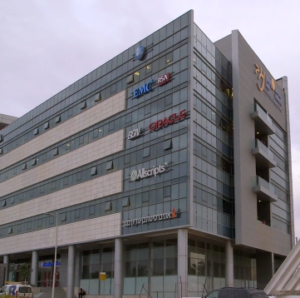
Why Israel Could Be the Next Cyber Security World Power
Why Israel Could Be the Next Cyber Security World Power
March 10, 2015
ITWorld — There are plenty of cities in the United States that want to lay claim to becoming the “next” Silicon Valley, but a dusty desert town in the south of Israel called Beer-Sheva might actually have a shot at becoming something more modest, and more focused. They want to be the first place you think about when it comes to cyber security research, education, and innovation. If things go right there, it may well happen.

More than a dozen tech companies have already established labs and research offices at Beer-Sheva’s Advanced Technologies Park, with over 1,000 employees working there.
To become such a cyber nexus, any place has to have several ingredients: A great university with a solid computer science department with a penchant for security research. Check.
Several industry partners who have set up their own research and innovation laboratories nearby, to take advance of the cheap labor pool of graduate students. Check.
An active venture capitalist operation that can fund startups is also essential, along with mentors who can help entrepreneurs along. Double check.
And finally some solid support for local and national government to grease the wheels of progress. Check.
Let’s look at the university first. About 1,000 out of the 20,000 students that attend Ben Gurion University are computer science or IT-related majors.
BGU was the first Israeli university to offer a graduate cyber security program several years ago. I met several of their students, some who have come to BGU from India and China with graduate degrees from schools in their home countries and wanted something more.
Perhaps the biggest future impact for Beer-Sheva is something that the government is working on. There are two elite cyber security groups: the 8200 group that is the Israeli equivalent of the NSA that processes signals intelligence as part of the military and one for civilian purposes that is going to be called the National Cyber Bureau. The military group currently employs several thousand soldiers who are housed on a campus in central Israel. The plan is to move both of these units down south.
The 8200 group has a storied past in Israeli tech history: its former members have gone on to establish numerous companies such as CheckPoint, Palo Alto Networks, and CyberArk, just to name a few. People in these units could be the engine ultimately driving the entire Beer-Sheva ecosystem, since most men and women finish their mandatory military service in their early 20s: then they are well poised for a potential business position to start their civilian careers.
But this isn’t the only new construction happening in Beer-Sheva. In September 2013, the Advanced Technology Park opened to great fanfare. It has two finished buildings (with plans for more to be built of course) across the train tracks from the main BGU campus and within a short walk from one of the Beer-Sheva train stations.
“A lot of cities in Israel have high tech business parks but we want to make Beersheva special. The basic building blocks are here and we need to play our cards right and take advantage of them,” says Tom Ahi Dror, head of human capital development at the Israeli National Cyber Bureau, which is now part of the Prime Minister’s office.



